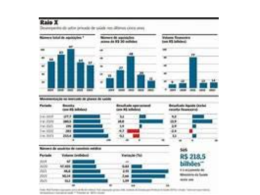the
health transformation
foundation
Joaquim Cardoso MSc
31 de Janeiro de 2024
Key Takeaways:
Healthcare Demand:
Healthcare demand remains resilient during economic downturns due to the increased need for medical services stemming from poorer health conditions resulting from unemployment and financial challenges.
Investment Stability:
Despite overall lower investment levels during economic downturns, the healthcare sector tends to maintain stability. Investors continue to show interest, expecting rising demand and encouraged by opportunities in private pay markets and partnerships with independent providers.
Labor Challenges:
Access to labor remains a consistent challenge for healthcare providers, exacerbated during economic downturns due to increased unemployment. However, well-managed care facilities with collaborative health and social care systems fare better in retaining staff.
Mental Health Support:
Long-term trends indicate a rising demand for mental health care, particularly influenced by the COVID-19 pandemic’s effects. Providers are adapting service models to meet increasing demand and mitigate waiting times.
Investment in Mental Health:
Learnings from previous downturns emphasize the importance of continued investment in healthcare, particularly mental health care, to address rising demand and mitigate long waiting times.
Financial Preparedness:
Investors should not neglect investment in healthcare during economic downturns, as it has long-term consequences for healthcare provision. Pricing operational risk alongside real estate and tenant credit risk is crucial for financial sustainability.
Encouraging Investment:
Real estate investors should recognize the benefits of targeting the healthcare sector, including secure, long-term income streams and positive economic and social returns. Alternative financing options, such as real estate financing, can further encourage investment in healthcare infrastructure.
Overall, the healthcare sector demonstrates resilience and attractiveness for investment even during economic downturns, with a focus on addressing evolving healthcare needs and ensuring financial sustainability.

How does the healthcare sector perform during an economic downturn?
CBRE
By Alice Marwick
April 5, 2023
Interview with Sarah Livingston, Executive Director, Healthcare
1) How does an economic downturn affect the healthcare sector?
Demand for healthcare doesn’t diminish in an economic downturn.
Evidence shows that the reduced employment opportunities and financial challenges can lead to poorer health. It follows then, that demand for healthcare services will increase during an economic downturn.
The challenge is whether supply can keep up with this demand. In particular, whether the Government has the finances to allocate to healthcare when there are so many competing demands for public funding.
2) How does an economic downturn affect investment in the healthcare sector?
Generally, overall investment levels tend to be lower during an economic downturn. However, the healthcare sector does not seem to be affected by cyclical trends.
For example, currently we are seeing a continued interest in the healthcare sector and assets despite the challenging macroeconomic market conditions. Investors expecting that demand will continue to increase, are also encouraged by the rise in the private pay market and the growing propensity for the NHS to work with independent providers.
We are also seeing pricing on investment stabilise and recover quickly, following the disruption cause by last year’s mini budget.
3) Aside from the economic downturn, are there other challenges facing healthcare providers?
From a healthcare point of view, access to labour is an ongoing challenge. Usually, economic downturns trigger increases in unemployment and while we expect unemployment to rise marginally over this year, the labour market will remain tight and is particularly constrained within the health and social care sector.
Nevertheless, operators are reporting that well-run care homes, where there is ongoing collaboration between health and social care, are weathering the storm and reporting low staff turnover.
Fee levels are rising to meet increasing labour costs, and local authorities are recognising that fees need to increase to provide quality care.
4) Are there any longer-term trends influencing healthcare provision?
In addition, rising demand for mental health care support will continue to increase, following the unprecedented demand and increased severity of cases during the COVID-19 pandemic.
Higher levels of demand are impacting waiting times nationally, so healthcare providers will be looking at ways to deliver as much support as possible through an array of service models.
5) Has the healthcare sector learned anything from previous downturns that will help mitigate the impact?
With demand for mental health care rising during a downturn, we have learned to continue to invest in healthcare, particularly mental health care, even during periods of economic hardship.
There has been a lot of focus on waiting periods for operations, but there are also similar issues affecting waiting lists for life-saving mental health referrals.
Longer waiting times for mental health referrals can have knock-on effects. For example, hospital admissions for eating disorders have increased by 84% in the last five years.
In response, mental health services are being supported by an additional £2.3 billion in funding every year until 2023/24, as part of the NHS’ Long Term Plans commitment to improving mental health services.
6) Are there any financial lessons we have learned from previous economic downturns?
It is important investors and operators don’t use the economic downturn as an excuse not to invest, because we will suffer the consequences from a healthcare perspective.
However, there is still strong appetite for healthcare among investors and providers, and we are not anticipating a significant slowdown.
Investors have also learnt to price operational risk alongside real estate and tenant credit risk, not only during a recessionary environment but during periods of economic growth too.
7) What can be done to encourage real estate investors to target the healthcare sector?
Investors seeking secure, asset-backed, long-term income streams in a sector underpinned by a widening gap between supply and demand should explore the potential benefits and returns of investing in the healthcare sector.
Investors should understand that supply and demand is not the same in healthcare as it is across other sectors as the impact of macroeconomic conditions varies within this sector.
The healthcare sector continues to prove attractive because of the long leases that are typically on offer and returns are increasing.
An alternative to debt financing is also a good way to encourage real estate investors to target the healthcare sector. Real estate financing is a good addition or alternative to debt financing for refinancing, recapitalisation, or growth.
The real estate sector should continue to buy, build, and invest in healthcare, as this will always be a growing, evolving and vital sector with positive economic and social returns.
Originally published at:
CBRE is the global leader in commercial real estate services and investment.












